Tennis is a smash for blind and visually-impaired people
- Published
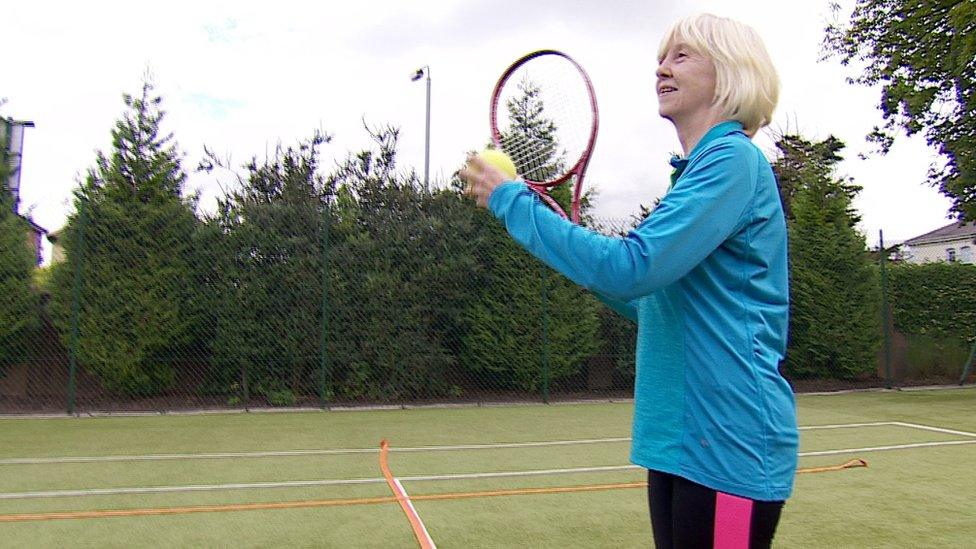
Blind and visually impaired tennis players use a bigger ball that rattles
"Everything about the game is fantastic - it's given me my sport back"
That is how Brian Lenehan describes playing tennis for blind and visually impaired people, which is being offered for the first time in Northern Ireland at Windsor Tennis Club in south Belfast.
Brian is partially sighted after his vision was badly damaged following a collision with a goalkeeper in a game of Gaelic football.
He now has a condition called neuromyelitis optica which means he has virtually no central vision although he retains some peripheral sight.
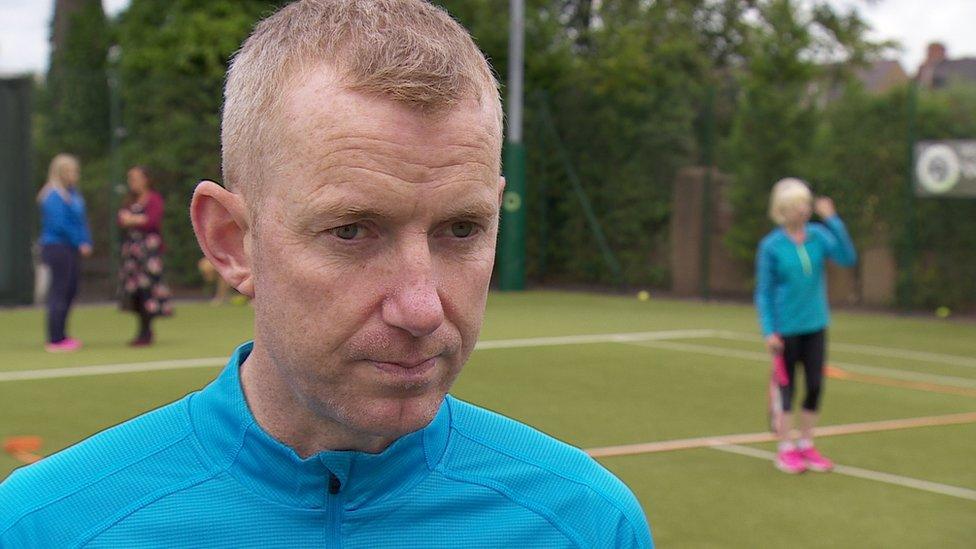
Brian Lenehan has rediscovered sport through tennis
As a person who regarded sport as a big part of his life before the accident, Brian said Blind VI (visually impaired) tennis has become very important to him.
"When my sight went, it was human instinct to say - 'that's it, everything is finished'.
"To try and get out of that, you need to experience different sports, but you need to do so in the right environment, a safe environment with coaches who know your situation, and who you trust."
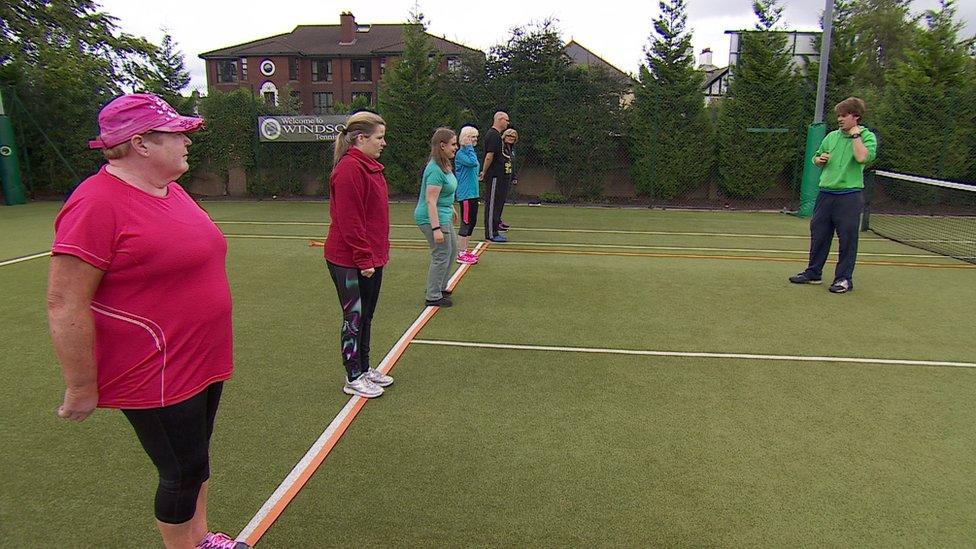
On the baseline at Windsor Tennis Club
The main differences in the game are a larger-sized tennis ball, which rattles to allow players to track it, and the number of bounces allowed.
The size of the court is also altered to about half that of a full tennis court.
The scheme began when Disability Sports NI approached Windsor Tennis Club last year.
It has been so successful that there are now 14 players who are split into two groups.
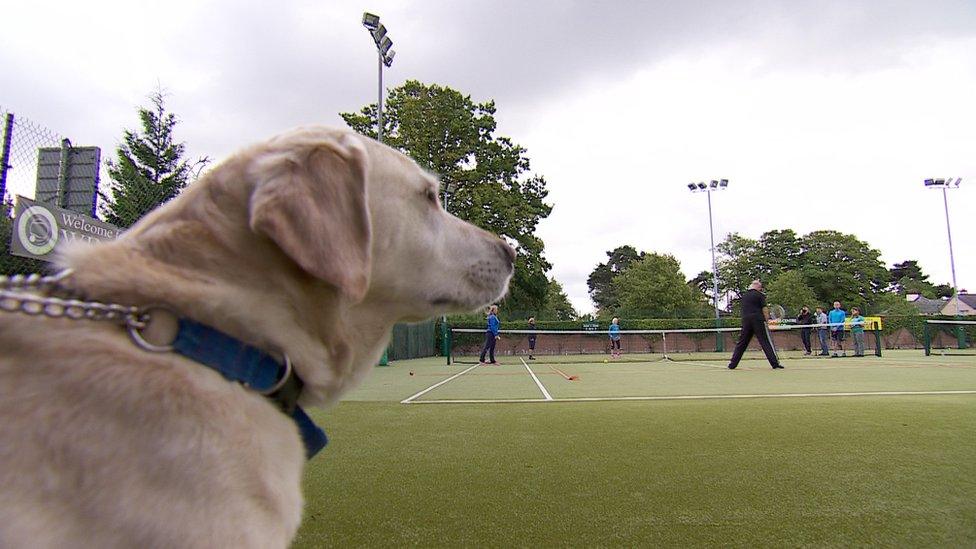
Keeping an eye open for stray tennis balls
Simon McFarland, director of tennis at the club, said it was a tough game to play.
"The players have to really listen out for the ball. Tracking it is the most important part rather than hitting it. Hitting the ball is actually quite easy for them."
Torie Tennant is blind and travels from Ballymena to Windsor once a week with her guide dog, Ushi.
"It is fantastic craic. It is great to be involved in a sport that is so inclusive," she said
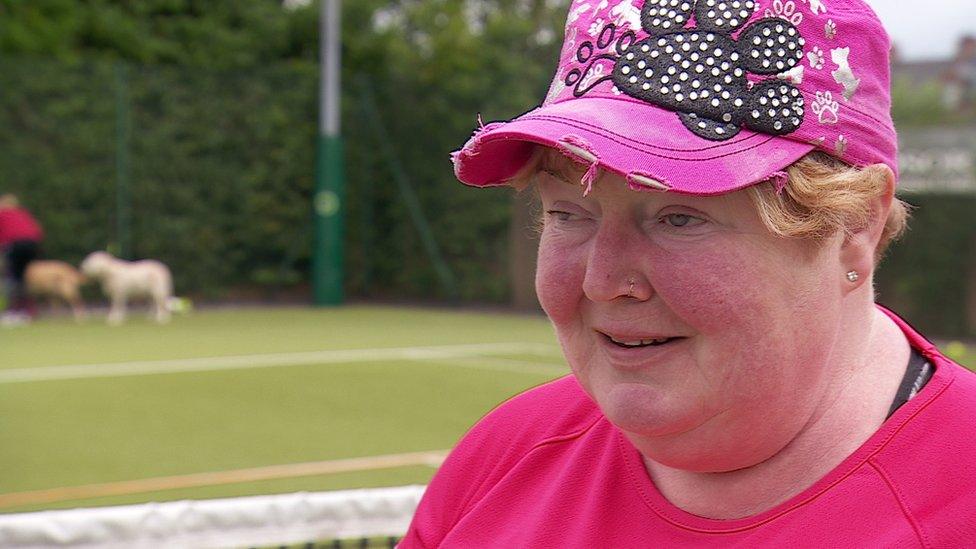
Deborah Shaw says the game has given her a new lease of life
For Deborah Shaw the experience has changed the way she feels about sport and keeping fit. She has had poor vision since birth and her eyesight has deteriorated further.
"When I was at school I hated sports and was always the last person to be picked for team games. When we did netball I actually ran away from the ball rather than towards it.
"This, with the support from Simon and the supporters, has really given me a new lease of life. I'm just buzzing about it."
Judith Brennan from Disability Sports NI said the organisation hoped to be able to roll out the project further, as they can see the benefits for those who are taking part.
Social outlet
"It is a big social outlet for people - as well as getting active it is a big confidence builder.
"I think we could always do better but I think we are doing a good job in terms of targeting the right people. It can be very difficult for people with sight loss because maybe they can't use social media, there are little barriers there - but that's part of my job to cancel that out and make everything inclusive."
Brian Lenehan is aiming high with the goal of taking part in the international blind tennis championships next year.
"Once I started playing my first game I just knew - this was for me," he said.